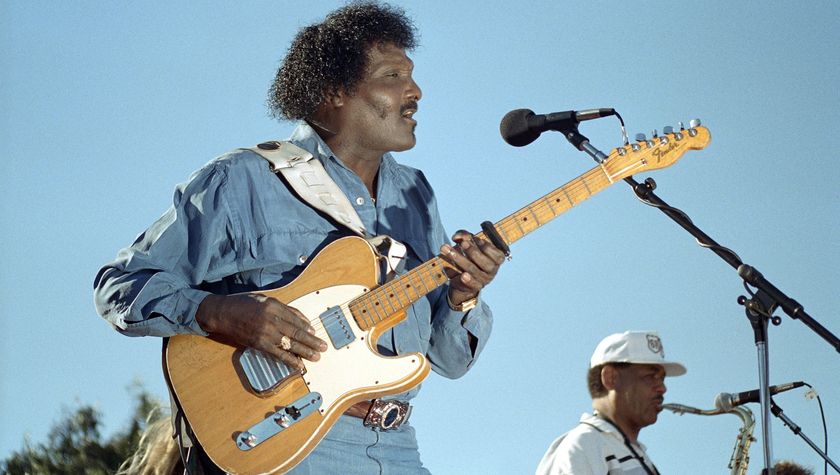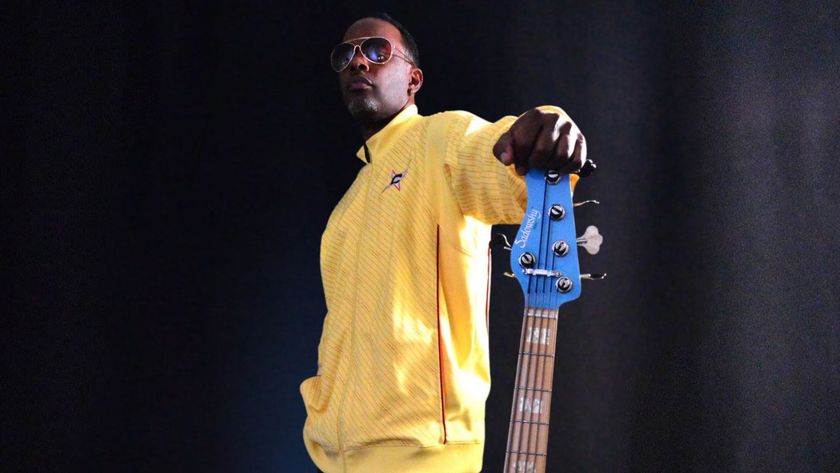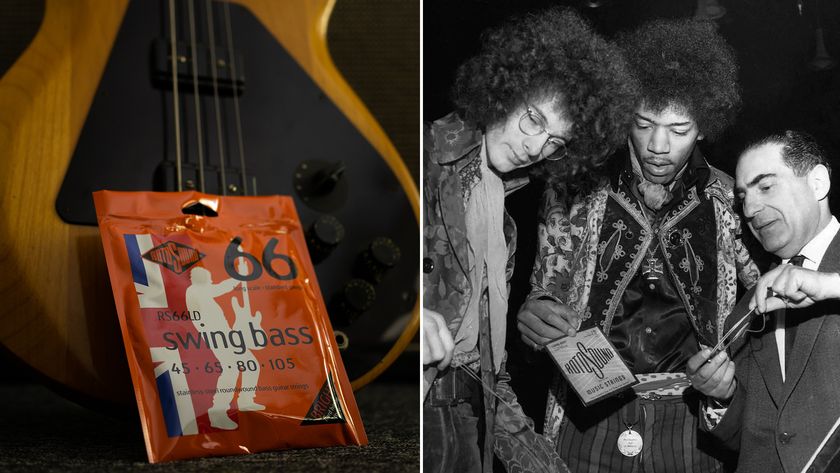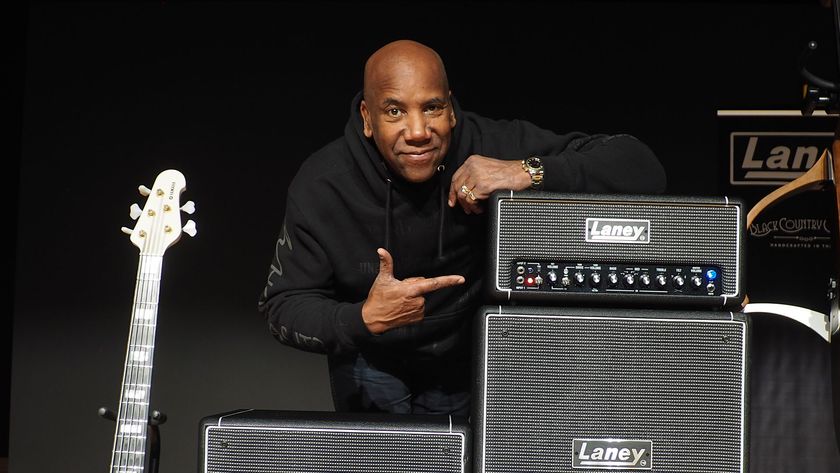“I’m still predominantly a Tele player, but I felt like my guitar playing had got a bit stale. I switched to a Les Paul for a year and I think it did the trick”: Joanne Shaw Taylor on rewiring her playing and conquering ADHD in the studio
New album Heavy Soul finds JST pushing her vocals to new limits and pushing tube amps beyond their limits, and it cements her rep as one of the great blues players of our time
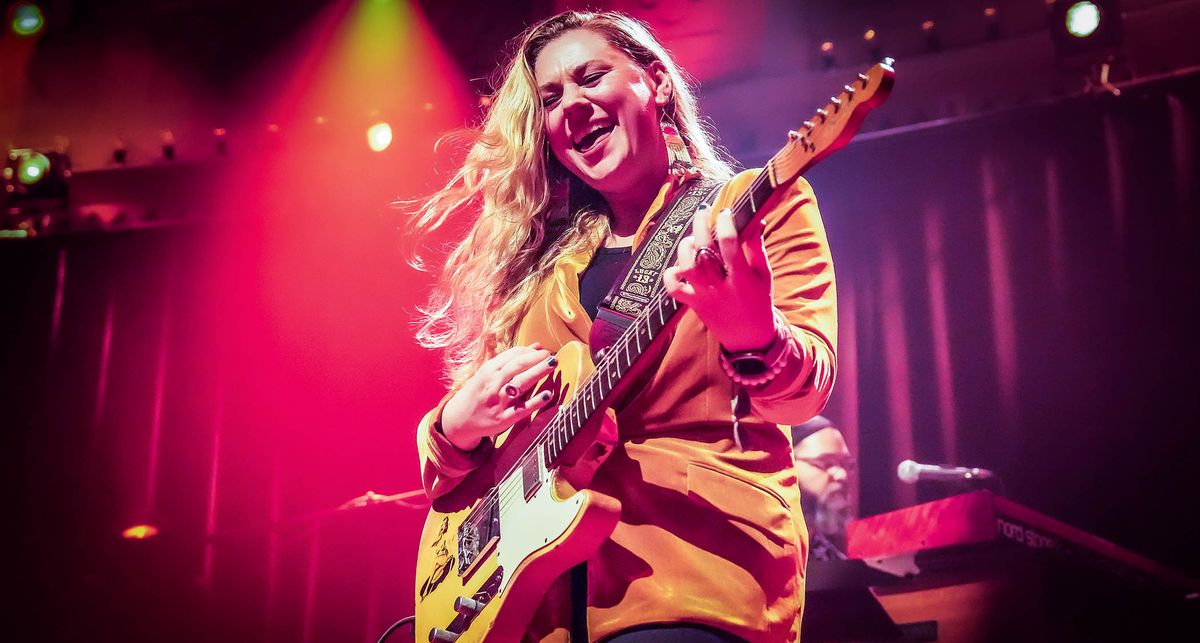
It was busyness as usual when we Zoom-called Joanne Shaw Taylor. With her faithful hound, Hank (a miniature Dachshund, aka ‘The Psychosausage’), by her side she was already in the middle of a writing session for the follow-up album to Heavy Soul.
“Well, I’m trying to write, if Hank will let me,” she says. “He keeps barking at everything and he has a rabies vaccination this afternoon. It’s all very rock ’n’ roll and unglamorous over here!”
A period of intense touring had preceded today’s interview and, with the new album poised for release into the world, she was eager to detail her recording experience, which included working once again with legendary producer Kevin Shirley.
Did you take your regular touring band into the studio with you?
“I didn’t, no; we used studio musicians. Well, we used other musicians, they don’t just work in a studio. But, to be honest, I’ve always really liked that. The main reason being is I have a fantastic band and I love them dearly as musicians and people, but there’s something nice about going into the studio with musicians who don’t know me as well.
“So they don’t think as much about what I would want for the song and [they think] more about what’s actually right for the song. I’m sure the guys in my band are probably sick of me after a tour and glad I’m going off for three weeks to do something else without them!”
What was it like to work with Kevin Shirley as a producer?
Get The Pick Newsletter
All the latest guitar news, interviews, lessons, reviews, deals and more, direct to your inbox!
“I love working with Kevin. It’s 50 per cent that he’s a fantastic producer who absolutely knows what he’s doing – in that he knows my genre of music – but we’re also really, really great friends, and to have that level of trust with someone who knows who the songs are written about and what you’re going through personally, I think that’s a really nice, comforting thing to have. I think it really helps the songs.”
We’ve heard he runs quite a tight ship in the studio. Would you say that’s true?
“Definitely. He likes to get things done quickly and I do like the fact that it gives you a bit of discipline – not to overthink things. Having ADHD, if I give myself too much time I’ll spend most of that time procrastinating and then do the work when I’m really panicking.
“So there is a sense of, ‘Okay, we’ve got to get this done in 10 days, right? That’s four takes of this, that’s good enough. We don’t need to do 20 takes.’ We’re doing things pretty much live in the studio and it’s quite an organic genre of music. So there’s no need to overthink it too much, I suppose.”
Do you enjoy working in the studio?
“I love it. As a songwriter, hearing your songs come to life is really fulfilling. To go from the demo stages up to hearing it live with the band and then in post-production, mixing and mastering, I really enjoy that. After 10 days, I’m about ready to be done. It’s not ever going to be for me that I would want to do it day in, day out.”
Heavy Soul features a couple of covers, alongside your own material: Joan Armatrading’s All The Way From America and Van Morrison’s Someone Like You. Are these favourites of yours?
“To be honest, Kevin selected them. He’s really brilliant at bringing interesting covers to the table. I’m happy to admit I’m not very good at picking covers. That’s why I always kind of lean towards teaching myself to write songs. The Van Morrison one was probably the one I was most worried about because I love that song.”
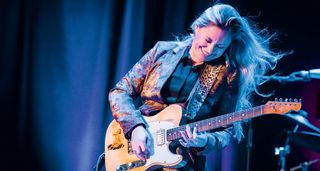
“It’s hard to do Van Morrison justice, he’s such an incredible singer. And also my real fear was that it’s so attached to the Bridget Jones movie. But Kevin had a good point in that my audience probably doesn’t watch Bridget Jones. But I thought it turned out really well and I loved it when I really got into it and got into the lyrics. It’s such a heartfelt song, it’s really beautiful. Hopefully, Van Morrison never hears it [laughs].
“And I love the idea of the Joan Armatrading song because I’m a big fan of hers, and also, both [growing up in] the same area of the UK [West Midlands] – and women – it’s nice to have a little nod to her. That one was a bit more of a challenge. It’s not vocally anything I’ve ever done before, so, I approached it with, ‘Okay, Kevin, I’m gonna give this a good go, but don’t hate me if this sucks.’ But, fortunately, I thought we did quite a good job on it.”
How many guitars did you take into the studio with you?
“I took two guitars into the studio because I’m lazy and I don’t like carrying around lots of heavy guitars. That’s the most honest answer I can probably give you. Also, where we recorded, at RCA Studios, where Dave Cobb [is producer-in-residence of Studio A], he’s got a brilliant collection of amps and guitars and everything you could need, which is always helpful in a studio setting. So I took ‘Junior’, the ’66 Esquire, and a Custom Shop Les Paul from 2008. That was a random Reverb purchase many years ago that I adore.”
I switched to a Les Paul for about a year and I think it did the trick; it did help tidy up a lot of my playing and help me grow a bit as a player
What attracted you to the Les Paul?
“I mean, I’m still predominantly a Tele player, but around 2012 I was doing my third album [Almost Always Never], and I felt like my guitar playing had got a bit stale. So I went through a lot of practice, trying to reboot it, and I decided to switch guitars. I also switched guitar picks and moved to [Dunlop] Jazz IIIs, which are a lot smaller, just to try and tidy up my right-hand technique.
“I think it was one of those things where you spend every day on the same instrument and you tend to form lazy habits. Maybe I felt like a different paintbrush, or whatever, would make me think a bit more outside of my usual comfort zone.
“I switched to a Les Paul for about a year and I think it did the trick; it did help tidy up a lot of my playing and help me grow a bit as a player. But it was nice then to revert back to my signature tone and apply what I’d learned to the old workhorse.”
Out of all the guitar amps that were at the studio, did you use a selection or did you bond with just one?
“We just used a ’62 Piggyback Bassman and I think I had a Tube Screamer 808 if I needed a bit of a boost. That wasn’t too often because the lovely thing about being in the studio is there’s a soundproof amp room so you can crank things up more than you’re able to sometimes live.”
Have you been playing the new material on the road?
“Yeah, we’ve added about four or five numbers now because, unlike previous albums, every song on this one has been released as a single. So it’s rare for me because I don’t really like to go into a tour and play new material from an album that people haven’t heard.
“It’s okay to do a number or two, but if you’re playing half your set of songs that people don’t know, it’s not really my favourite thing to do. But this has been nice because the album wasn’t out yet, but they’ve had a chance to hear a few numbers.”
- Heavy Soul is out now via Ingrooves.
With over 30 years’ experience writing for guitar magazines, including at one time occupying the role of editor for Guitarist and Guitar Techniques, David is also the best-selling author of a number of guitar books for Sanctuary Publishing, Music Sales, Mel Bay and Hal Leonard. As a player he has performed with blues sax legend Dick Heckstall-Smith, played rock ’n’ roll in Marty Wilde’s band, duetted with Martin Taylor and taken part in charity gigs backing Gary Moore, Bernie Marsden and Robbie McIntosh, among others. An avid composer of acoustic guitar instrumentals, he has released two acclaimed albums, Nocturnal and Arboretum.
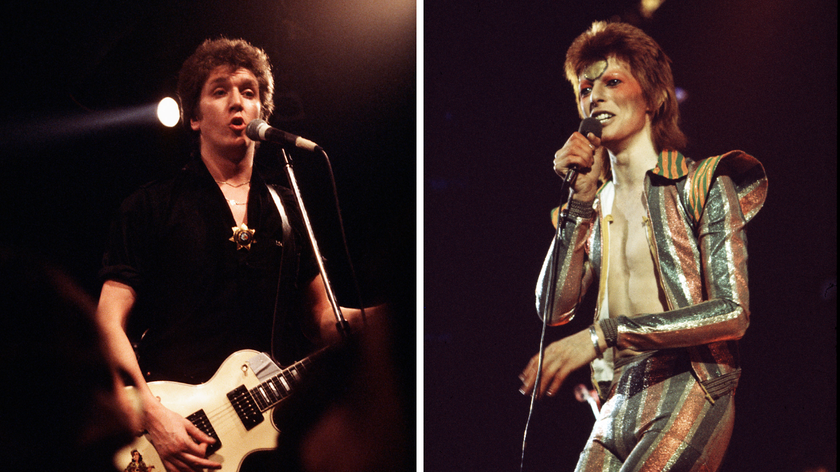
“I nicked some cymbals, the bass player’s amp head and some microphones. I got Bowie’s microphone with his lipstick on it!” On July 3, 1973, David Bowie retired Ziggy Stardust – that same day, Steve Jones stole his equipment
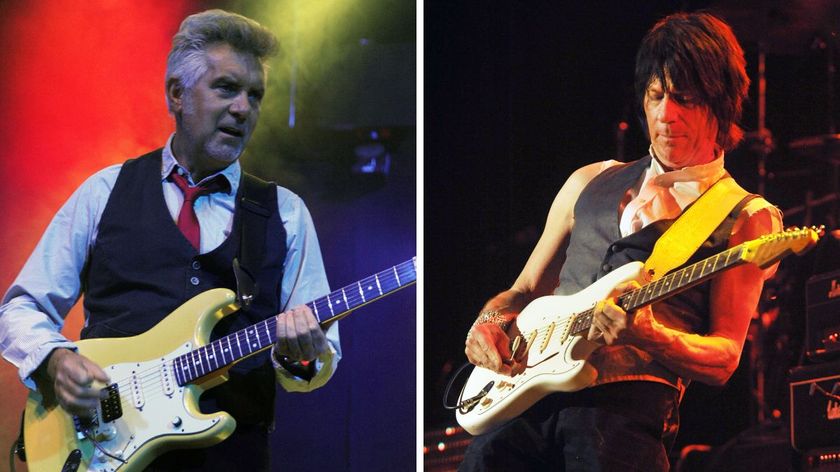
“Jeff was playing through his dodgy Marshall and didn’t like the sound. He said, ‘We’ll do it again, later on…’” Mick Rogers may be in possession of Jeff Beck’s last-ever studio recording





